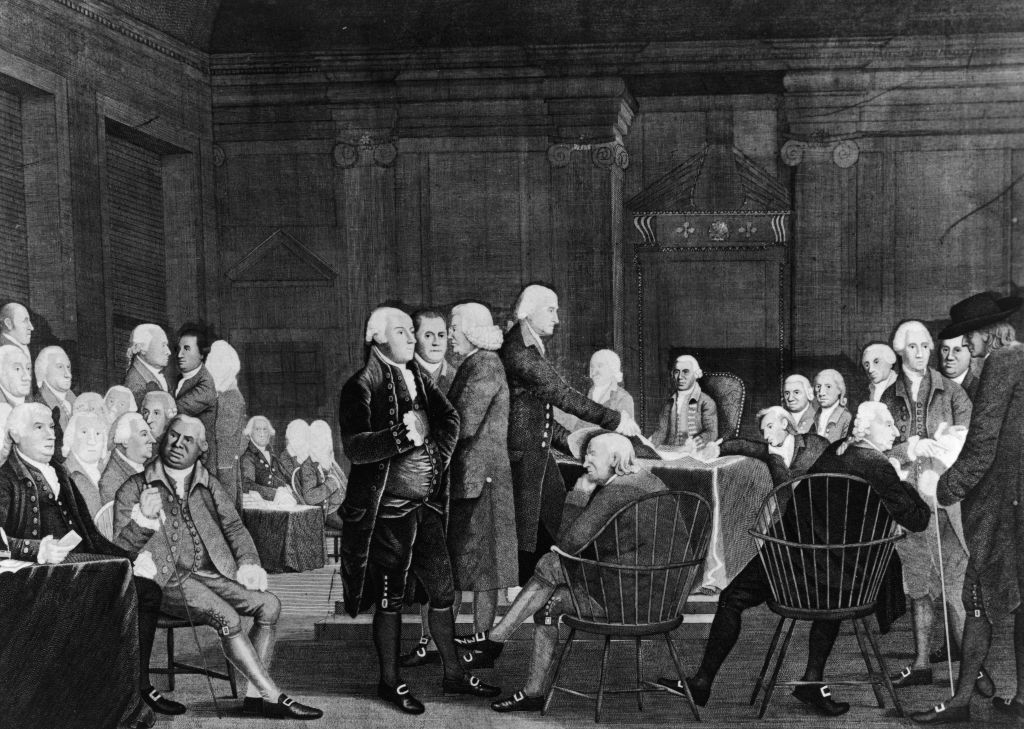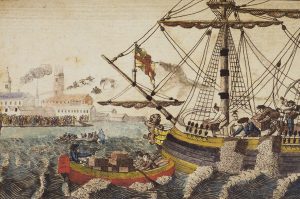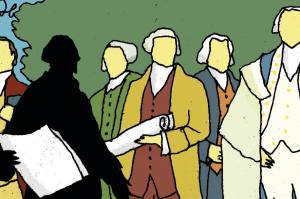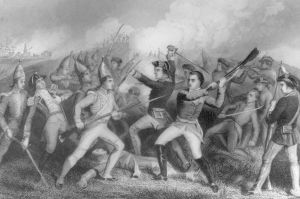Americans are rarely accused of underestimating themselves, but might they in fact be a greater people than they think? That thought has regularly occurred to me over the past three years while I was researching and writing my new biography of their last king, George III, and especially when I read Richard Brookhiser’s insightful comment in his recent book Give Me Liberty, where he points out that Britain’s thirteen American colonies in the 1760s and early 1770s were among “the freest societies in the world.”
Plenty of peoples throughout history have seized their sovereign independence because they were being oppressed: the biblical Israelites escaping the Egyptians; the sixteenth-century Dutch throwing off the Spanish yoke; the Greeks rebelling against centuries of Turkish rule; the nineteenth-century Italians rejecting the Habsburg Austrians. History is so replete with such examples that the story is almost banal. Yet what the Americans did in 1776 was to rebel against a king who was not oppressing them. Indeed, he was almost the personification of an Enlightenment monarch and Renaissance prince.
There is a great debate in modern America about whether the United States is an exceptional nation. President Obama famously shillyshallied, before essentially denying it. Yet there is something truly historically exceptional about the American colonists recognizing that self-government was so necessary that they overthrew a benevolent monarch who gave them minimal bureaucracy — there were only seventeen royal administrators in Virginia in 1774, for example — and among the lowest taxes in the civilized world. (The Stamp Act cost them an average of two shillings and sixpence per person per annum.)
Complete Anglo-American victory on the North American continent in the French and Indian War in 1763 meant that the thirteen colonies were under no threat from the French empire, whose nearest troops were in Haiti. The French population in Canada was reconciled to British rule by the Quebec Act of 1774, which gave them civil and religious liberty. Apart from localized danger in the west from some — but by no means all — of the Native American tribes, the American colonies were in a perfect position to assert their independence. But not their liberty — except in the most philosophical sense — since they already had that.
In 2015, Queen Elizabeth II allowed 200,000 pages of the Hanoverian monarchs’ private papers to be put online by the wonderful Georgian Papers Programme, a collaboration between King’s College London and the Royal Archives. Had there been any plan on George III’s part to establish an oppressive regime in his North American colonies, there would have been at least a whisper, shadow or echo of it somewhere amongst his extraordinarily extensive correspondence and memoranda. Yet there is nothing of the sort. Instead, there are papers attesting to his genuine interest in American topography, flora and fauna, and local lore.
King George bought books about America, quizzed Native American chiefs about their customs and showed the kind of paternal attitude that one might expect from a constitutional monarch. Of any sinister plan to oppress his colonists there is not a word. Yet this is the man of whom Thomas Jefferson wrote in the Declaration of Independence: “A prince, whose character is marked by every act which may define a tyrant, is unfit to be the ruler of a free people.”
The Declaration is a curious document. The first third of it is written in sublime, almost Shakespearean prose that still has the power to make one proud to be human, about the self-evident truth of all men being created equal, and so on. Then the second part, a full two-thirds of it, presents a series of no fewer than twenty-eight ad hominem charges against George III. Of those charges, only two hold water. The other twenty-six are a combination of ex post facto rationalizations, wild exaggerations, near-paranoiac fantasies, and accusations of oppression about various laws that had been in existence ever since the colonies had been founded nine monarchs earlier in the time of Elizabeth I.
If George III had been a tyrant before the outbreak of the American Revolution, he would have done the same kind of things that tyrants did elsewhere in the world. He would have stationed troops in American cities, which he never did in the special circumstances of Boston after 1768. He would have closed newspapers and arrested editors, which he never did. He would have at least attempted to prevent the Stamp Act Congress and First Continental Congress from taking place. He would certainly have interned the ringleaders of the Boston Tea Party, which, out of his respect for Magna Carta and English common law he never once so much as considered doing.
There were certainly no lack of contemporary tyrannies against whom George III’s behavior can be judged. The Spanish crushed an uprising against their rule in Louisiana in 1768, executing all its leaders. The French crushed Corsican resistance to their rule in 1769. In Poland, which was partitioned between Austria, Russia and Prussia in 1772, liberty was entirely extinguished. The Russians’ bloodthirsty campaign of savage executions and reprisals in the regions affected by the Pugachev Uprising against Catherine the Great in 1773-75 ended with tens of thousands massacred and Pugachev himself beheaded and dismembered in Moscow in January 1775. George III would never have done that to Jefferson, John Adams, George Washington or even Thomas Paine, who called George “the royal brute of Britain.”
The Declaration of Independence and twenty-six of its charges should therefore be seen for what they are: essential wartime propaganda rather than an accurate reflection of George III’s rule in America. Yet the two charges that do hold true — the seventeenth (about taxation rights) and the twenty-second (about Parliament’s legislative rights in the colonies) — entirely justify the American Revolution.
After the Treaty of Paris saved them from the French threat, the American colonists saw their opportunity for self-government. They quite rightly grasped it. Their manifest destiny demanded it and their subsequent rise to global primacy has vindicated their courage in taking it. Yet none of that obviates the fact that George III was a model monarch, whose reputation finally deserves rehabilitation a quarter of a millennium later.
This article was originally published in The Spectator’s December 2021 World edition.





















